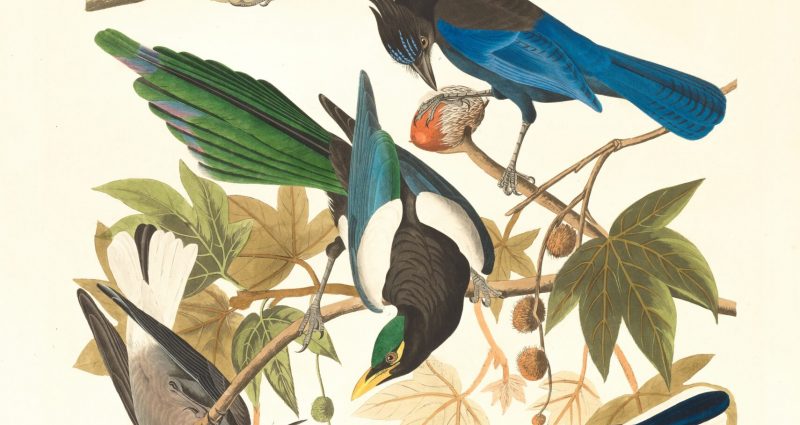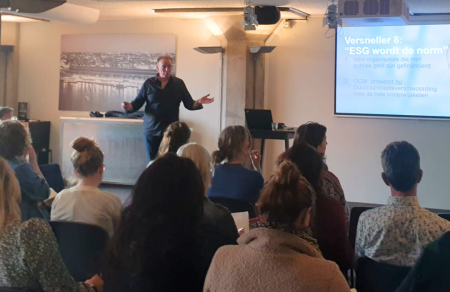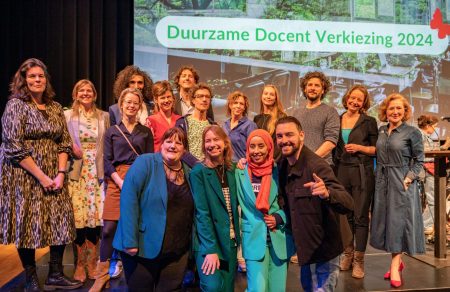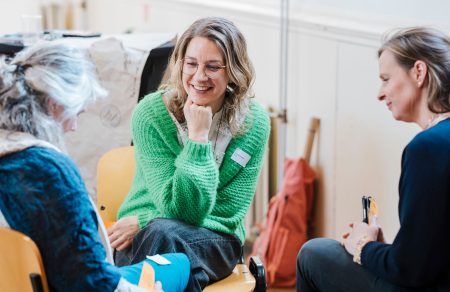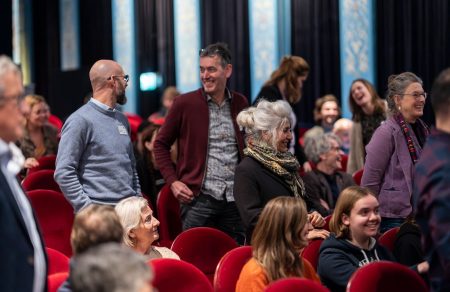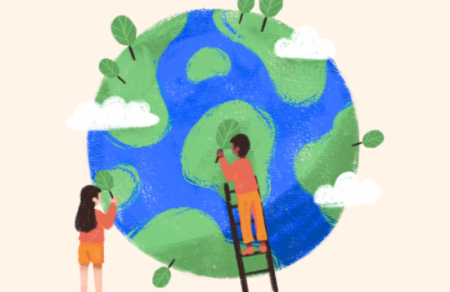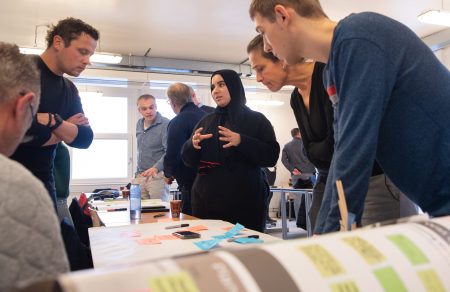This didactic book will keep teachers (especially biology teachers and students at university teacher training colleges are the target group) and educational organizations busy for some time. For it is an exceptionally thorough, well thought-out work. Precisely because the authors really look at teaching and learning processes from all sides. I find it so solid that I wonder if readers won't react a little uncomfortably or frightened when they get their hands on it. There are so many aspects they could/should take into account that some of them (probably not all, but still) might get discouraged. At least, if they consider it a reading book and not a reference book. But, fair is fair: the authors have also tried to "encapsulate" this mass of information into bite-sized chunks, as one author described it.
And further, this author writes to me, "Furthermore, we worked hard to ensure that the book can be opened in all sorts of ways: teachers can start with any learning activity. We've put in lots of hooks to entice them to delve into the first 100 pages of text. They then easily visit the website where there is a lot of material that can be used 'for tomorrow morning's lesson'.".
There is another solution to this: use it first during an after/update training session to practice with it. But given the large amount of information, you can imagine that this is not all, even in a lessonseries, can be processed. I am almost beginning to believe that such a book is especially suitable for a longer learning period.
Contents
It seems to me that a teacher's first orientation, at least in the higher grades of secondary education, is to the requirements of the exam. In this respect, Chapter 2 is particularly clear in its descriptions of main themes of ecology, such as 'food relations', 'energy flows', 'cycles', 'adaptation', 'regulation of numbers in populations' and 'ecosystems'. The leeway for curriculum developers and teachers may be quite limited to address other themes or to apply those main themes to human society. The latter is provided for, for example, by Hans Meek in his book 'Ecologica' (Eburon Publishing, 2017).
As an aside, I see movement - fortunately in my opinion - on the curriculum side, for example in the development process of Curriculum.nu. This is understandable, because various social organisations were involved in that process, such as Leren voor Morgen itself. They had a lot of input on the point of 'people/nature/sustainability'.
The above would have fit well in one or more intermezzi found in each chapter. There, the authors now attempt to have a daily reality described by a number of outside experts. These are also interesting but not immediately the due to or a subsequent to a previous text in the book. Which means that this broader, let me call it the cultural context of human action, embedding does not get as much space. I understood from one of the authors of the book, by the way, that that was not their intention either. A pity, nevertheless.
This brings me to a second point. It would have been valuable if a chapter (or at least an interlude) had been included at the beginning in which the place of man and his society as part of the biosphere would have been touched upon. After all, the global feedbacks - now strongly negative for many people - (climate extremes, major losses in biodiversity, coronavirus ......) on human actions on this planet, are examples of this. Then we are no longer talking about the outsider, if you will, the 'manager' or the 'steward'. We, like all organisms and their populations, are subject to the 'great' cycles of Earth and cosmos. But let that discussion come up in the group or classroom.
That notion of "man as part of the biosphere" - you can read between the lines that the authors think so too - does, I think, have implications for the teaching-learning process.
Firstly That students, in addition to acquiring knowledge and skills about "nature," are educated with the idea that they themselves are directly affected by it. They reflect on their own place in it (position, role, co-responsibility): the reflective moment of learning. In the field of sustainability, I find two Flemish brochures on this type of thinking worthwhile, although they are not specifically aimed at education and the theme is broader: 'The flag and the cargo' and 'On the road together'. In both, reflection questions are clearly articulated, with examples. Also in the (Dutch) book 'Teaching about sustainable development' by Martin de Wolf et al. (see the review in the October 2020 issue): gets that reflection right.
I am not concerned with trying to turn biology or ecology education into NME or ESD (the latter is also Flemish: Educatie voor Duurzame Ontwikkeling) but with the way of thinking: how to apply principles of ecology to human society. And in my opinion, this could have been pushed a bit stronger in this book, even if the authors have chosen a different approach.
A second consequence is that students should immerse themselves firmly in systems thinking. In the book, this seems to be addressed in some places - systematically, that is - in sections on so-called "yo-yoing": learning to work with different levels of organization.
Systems thinking, however, involves other aspects that are also essential here, such as learning to recognize that changes in one system (such as human action) can have changes in other systems (such as water, ecosystems and also on a social or cultural level). With the underlying question: how can you estimate that causes and effects of an action, which can be vastly different in space, system and time - so that they seemingly have no relationship - are nevertheless connected? A well thought out, comprehensive course on this was developed in Scotland for the national WWF organization.
A third consequence Is learning to deal with values in the classroom. Apparently, politicians are still reluctant to introduce values/ethics/self-reflection etc. into education. This can be seen, for example, in the, in this sense limited, assignment to Curriculum.now to reform core objectives in po and vo. But it is undeniable that value orientation is increasingly appearing in subjects. There is a reason why we live in an open, democratic and critical society where knowledge transfer is only one part of the (own) story.
The fourth consequence follows logically from the previous one: if a teacher decides to include student involvement in a subject in teaching, then you come to learning how to handle ethical issues. On this subject, a number of years ago in the Netherlands, a concise and clear booklet appeared, by Kees Vromans (former professor HAS Den Bosch) et al. One of the authors, Rob de Vrind (Koning Willem I College) wrote a chapter on how to use ethics in teaching practice (chapter 7). And the 1990 classics by Koekkoek, Delhaas and Akkerman ('Look, the kaleidoscope is moving') are also still very useful.
Methods
Indeed, the structure of the book seems to be such that teachers are taken more or less step-by-step through how to properly structure their teaching approach. The authors use a multitude of underlying literature; generally much foreign and often scientific. What I do miss are practical examples in their own country: also classics. Examples are the many practical articles of the former Bulletin for Biology Education (probably still available through the NIBI), the famous NOB Project (Nature Education for the Elementary School) (Nature Education for the Elementary School) with the Grabbelton of the SLO. Certainly, maybe not so scientific but very practical, clear. And the work of Kees Both on green pedagogy would not be out of place either. He has almost 130 publications on this subject to his name.
As for fieldwork, I largely miss didactics about it and find the descriptions somewhat clean. What I read about it doesn't warm me up. And that is exactly what fieldwork should do: enthuse to get a 'feel' for nature. Take par. 7.3. Fieldwork with weeds: winners or losers? At the bottom of page 165 it says, under c: 'What is weed...... "Weeds, which are undesirable plants". How so, undesirable and why? To whom? Oh, for the farmer. What is his problem then? And how do we stand on that? Can we talk to that farmer about that? ................. And what about biological control of agricultural pests?
The second example is a lecture by an IVN member from Amsterdam. During a meeting he once told a group of people walking along the Gein: "Look left and you'll see the most beautiful vegetation along the water's edge. Look right and you'll see short-mowed ryegrass. What's going on here left and right?" Right in the middle of the discussion about water and nature management, social acceptance, agriculture (economy), cattle feed etc. etc. Apparently the group loved it. So did I his lecture.
In short, then you're immediately in an interesting discussion about wild plants vs. non-desirable wild plants vs. neophytes vs. invasive species vs. economic action vs. globalization vs. functioning of and relationships between ecosystems and the like. And how we can deal with that to help develop that biodiversity for example anyway. And to use the term 'weed' only where wild plants are (commercially) undesirable.
Indeed, you can make it as broad as you want/need. But the basis is ecology, as this book describes it. To make it all more understandable, one could have referred to what they do in the Woldhuis (for children) and in the field study center Orvelte (for adults); or the Field Study Foundation in Hei- en Boeicop for example. There the teacher can also put ecology theories into practice with his/her class and may or may not choose to apply them 'socially'.
In short, in my opinion, the book could have been larded with some more practical situations, examples and pointers. The concept-context approach of the SLO (authored by Marja van Graft, among others) could be helpful in this respect in order to increase the relevance of the subject matter for the students.
General
It immediately struck me that the texts are very accessible: a pleasure to read this book so easily. Some of the illustrations could perhaps have been more accessible but the whole is to be welcomed in terms of careful execution!
All in all, a book well worth reading to explore the variety, relationships and changes[9] in earthly life to understand. Educational support and follow-up organizations can also get a good idea through this book of what a teacher is all about in this area.

